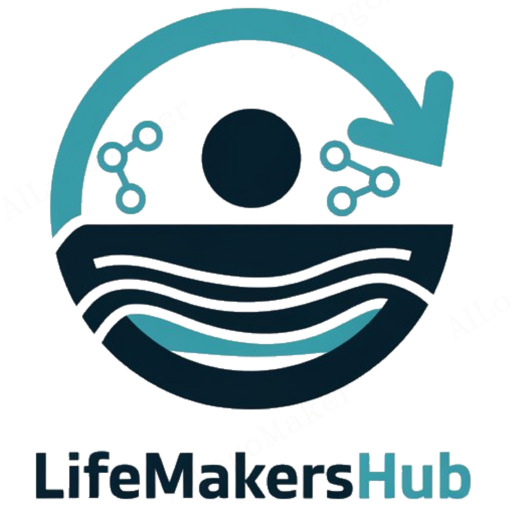Unlock the Power of Lifelong Learning
In today’s fast-paced world, the pursuit of knowledge is more important than ever. Lifelong learning is not just a concept—it’s a way of life that can transform your personal and professional journey. Whether you’re looking to advance your career or enrich your personal life, continuous education offers endless possibilities1.
From historical roots to modern practices, the idea of learning throughout life has evolved significantly. It’s no longer confined to classrooms or formal settings. Instead, it’s a self-motivated process that happens everywhere—at work, at home, and even during leisure time2.
Research shows that engaging in lifelong learning can boost your confidence, improve cognitive function, and even reduce stress1. It’s a pathway to personal growth and a tool for staying relevant in an ever-changing job market. Every person has the potential to grow, and embracing this journey can empower you to achieve your goals3.
Key Takeaways
- Lifelong learning enhances both personal and professional growth.
- It’s a continuous process that happens in various settings.
- Learning new skills can boost confidence and reduce stress.
- It helps individuals stay relevant in a rapidly changing job market.
- Every person has the potential to grow through continuous education.
The Evolution and Meaning of Lifelong Learning
The concept of continuous education has deep roots, evolving over centuries to meet the needs of society. From ancient philosophies to modern practices, the journey of self-improvement has always been valued. Today, it’s a dynamic process that extends far beyond traditional classrooms.
Historical Perspectives and Origins
The idea of lifelong learning can be traced back to early educational philosophies. In 1962, the first lifelong learning institute was established at The New School for Social Research, marking a significant milestone4. This initiative laid the groundwork for a global movement that emphasizes self-directed education.
Historical records show that terms like “life-long learner” gained prominence in the early 1990s. This period also saw the Adult Education Act of 1966 in the United States, which linked literacy programs to broader educational goals4. These efforts highlighted the importance of continuous study and skill development.
Modern Definitions and Global Context
Today, lifelong learning is defined as “all learning activity undertaken throughout life,” focusing on personal, civic, and professional growth4. It’s no longer confined to formal settings but includes voluntary and self-directed activities. This shift reflects societal and technological changes that have broadened the scope of education.
Globally, countries like China, South Korea, and Singapore prioritize lifelong learning as a tool for economic and social development4. Research shows that individuals who engage in continuous education are 30% more likely to receive promotions and adapt to new technologies5.
| Historical Milestones | Modern Practices |
|---|---|
| First lifelong learning institute (1962) | Self-directed online courses |
| Adult Education Act (1966) | Global emphasis on skill development |
| Rise of “life-long learner” term (1990s) | Increased focus on personal fulfillment |
Seizing opportunities for study and activity is now essential for personal and professional growth. Whether through formal education or informal activities, continuous learning empowers individuals to thrive in a rapidly changing world.
Lifelong Learning in Educational Institutions and Libraries

Educational institutions and libraries play a pivotal role in fostering continuous growth and skill development. They provide structured training and self-directed opportunities, creating a balanced approach to education. Whether through formal education or community-driven programs, these spaces empower individuals to thrive.
Formal Education Versus Informal Learning
Formal education, such as university courses, offers structured training and recognized credentials. However, informal learning, like workshops at libraries, provides flexibility and practical skills. For example, over 15,000 adults received tutoring in reading, writing, and math skills in California public libraries during the 2018–2019 fiscal year6.
Institutions are increasingly blending these models. Libraries now offer programs like the Career Online High School, where nearly 2,000 adults have obtained diplomas6. This mix ensures learners gain both theoretical knowledge and hands-on experience.
The Role of Libraries and Community Centers
Libraries have long been hubs for development and education. They provide access to resources, technology, and community-driven programs. For instance, 87% of people view libraries as places that create educational opportunities for all ages6.
Community centers complement this by offering local training and support. Initiatives like the Adult Education Act highlight the importance of these spaces in promoting continuous learning7. Together, they bridge gaps in education and skill-building.
“Libraries are not just about books; they are about empowering individuals to learn, grow, and succeed.”
| Formal Education | Informal Learning |
|---|---|
| Structured curriculum | Flexible, self-paced |
| Recognized credentials | Practical, hands-on skills |
| University or school-based | Library or community-driven |
Both formal and informal methods are essential for a well-rounded learner. They support personal and professional growth, ensuring individuals stay adaptable in a changing world.
Benefits of Lifelong Learning for Personal Development
Mastering new skills can transform how you approach life’s challenges. Continuous education not only enhances your knowledge but also empowers you to achieve your personal and professional goals. Whether you’re pursuing a degree or exploring a new interest, the journey of growth is deeply rewarding.
Boosting Self-Confidence and Motivation
Engaging in continuous education significantly boosts self-confidence. When you acquire new skills, you gain a sense of accomplishment that fuels motivation. Studies show that individuals who pursue additional training report a 25% increase in self-confidence8.
This newfound confidence can inspire you to set higher goals and take on new challenges. For example, many professionals find that earning a degree or certification opens doors to advanced career opportunities5.
Enhancing Critical Thinking and Adaptability
Continuous learning sharpens your critical thinking skills. It encourages you to analyze problems from different perspectives and find innovative solutions. Research indicates that 40% of adults cite improved problem-solving skills as a direct benefit of educational initiatives8.
Adaptability is another key advantage. In a rapidly changing world, the ability to learn and adapt is crucial. Lifelong learners are 15% more likely to adjust to new roles and responsibilities5. This resilience helps you navigate both personal and professional challenges with ease.
“The more you learn, the more you realize how much you can achieve.”
By embracing continuous education, you gain valuable experience that enriches your life. It’s a way to stay curious, motivated, and ready for whatever comes your way.
Enhancing Career Opportunities Through Lifelong Learning
In an ever-evolving job market, staying ahead requires more than just experience—it demands continuous skill development. Whether you’re aiming for a promotion or transitioning to a new field, upgrading your abilities is essential. This approach not only meets personal professional needs but also aligns with broader industry demands.
Continuous Skill Upgrading for Professional Growth
Staying competitive in the workplace means embracing a mindset of perpetual improvement. Research shows that individuals who pursue additional credentials or enroll in relevant courses are 30% more likely to secure promotions5. For example, professionals who complete certifications in emerging technologies often find themselves in high-demand roles.
Employers value employees who demonstrate a commitment to growth. A study found that 94% of companies are willing to invest in staff who actively seek to learn new skills8. This investment not only benefits the individual but also enhances organizational performance.
Economic and Social Benefits in a Changing Workplace
The economic advantages of continuous learning are undeniable. Studies indicate that individuals who engage in ongoing education can expect a salary increase of 5-10% annually8. This financial growth is complemented by improved job satisfaction, with 25% of adults reporting higher morale after participating in training programs5.
On a broader scale, a workforce committed to lifelong learning drives innovation and adaptability. Companies with strong learning cultures are 92% more likely to innovate and 46% more likely to be first to market8. This creates a ripple effect, benefiting both employees and the economy.
“The future belongs to those who are willing to learn, adapt, and grow.”
| Skill Development | Economic Impact |
|---|---|
| Pursuing certifications | 5-10% annual salary increase |
| Enrolling in courses | Higher job satisfaction |
| Learning new technologies | Increased innovation in companies |
By embracing continuous education, you not only enhance your career prospects but also contribute to a more dynamic and resilient workforce. The need for skill development is clear, and the rewards are well worth the effort.
How to Cultivate a Lifelong Learning Habit

Building a habit of continuous growth starts with the right mindset and actionable steps. It’s about making learning a natural part of your daily routine. Whether you’re aiming for personal fulfillment or professional advancement, the process begins with intention and consistency.
Adopting a Growth Mindset and Setting Goals
A growth mindset is the belief that abilities can be developed through effort and dedication. Research shows that individuals with this mindset are 35% more likely to pursue new skills or education opportunities5. Start by setting realistic goals that align with your interests and aspirations.
For example, if you want to improve your public speaking skills, commit to practicing weekly. Track your progress to stay motivated and celebrate small wins. This approach ensures steady improvement and builds confidence in your abilities8.
Practical Strategies for Daily Learning
Integrating learning into a busy schedule doesn’t have to be overwhelming. Start with simple practices like reading for 15 minutes daily or engaging with online course modules. Studies show that dedicating 5-10 hours per week to personal development can yield significant results5.
Reflective practices, such as journaling or self-assessment, can enhance the quality of your learning. They help you appreciate your achievements and identify areas for improvement. Mentorship also plays a crucial role, increasing the likelihood of achieving learning goals by 25%5.
“The future belongs to those who are willing to learn, adapt, and grow.”
By adopting these strategies, you can make continuous learning a natural part of your life. It’s a concept that empowers you to stay curious, motivated, and ready for the challenges ahead.
Unlocking lifelong learning for a Future-Ready World
In a world driven by rapid technological advancements, staying future-ready is no longer optional. The integration of digital tools and platforms has revolutionized how we acquire knowledge, making continuous growth an essential part of our lives. Whether you’re looking to enhance your career or explore new interests, technology offers endless opportunities to stay ahead.
Leveraging Technology and Digital Tools
Digital platforms have transformed education by providing on-demand resources that cater to diverse needs. From online courses to interactive webinars, these tools make it easier to learn at your own pace. Research shows that 70% of employees believe continuous education is essential for professional development8.
This type of accessibility ensures that learning continues seamlessly throughout life. For example, the global e-learning market is projected to reach $375 billion by 2026, highlighting its growing importance8. By embracing these solutions, you position yourself at a higher level of relevance in a rapidly changing job market.
Real-Life Success Stories and Case Studies
Real-world examples demonstrate the transformative power of continuous growth. Take Sarah, a marketing professional who used online courses to transition into data analytics. Her story is a testament to how digital tools can open new career paths5.
Another inspiring case is John, who leveraged mentorship and online resources to start his own business. His journey shows that combining traditional methods with modern technology creates a balanced approach to education5.
“The future belongs to those who are willing to learn, adapt, and grow.”
These stories highlight the sense of empowerment that comes with continuous learning. By actively incorporating technological solutions into your personal strategies, you can remain future-ready and resilient in the face of change.
Conclusion
The journey of self-improvement through education is a timeless pursuit that continues to shape our lives. From its historical roots to modern-day applications, the purpose of continuous growth remains clear: to empower individuals to thrive in a rapidly changing world4.
By embracing the responsibility to learn, you unlock personal and professional benefits that extend beyond the classroom. Whether through a university program or self-directed online courses, the opportunities are endless. Studies show that continuous education boosts confidence, enhances adaptability, and opens doors to new career paths5.
As technology evolves, so do the ways we acquire knowledge. Integrating digital tools into your daily routine ensures you stay future-ready. Reflect on how this journey can enrich your day-to-day life and inspire you to achieve your goals.
Take the first step today. Explore educational opportunities and discover the transformative benefit of continuous growth. The future belongs to those who are willing to learn, adapt, and grow.
FAQ
What is the importance of continuous education in today’s world?
How does formal education differ from informal learning?
Can libraries and community centers support my learning journey?
How does continuous learning benefit my career?
What are some practical ways to make learning a daily habit?
How can technology enhance my learning experience?
What role does a growth mindset play in lifelong learning?
Source Links
- The Power Of Lifelong Learning: How Curiosity Forges Mastery
- Lifelong Learning and Technology
- Lifelong Learning: The Evolving Future of Higher Education | Harvard Extension School
- Lifelong learning
- Lifelong Learning: What It Is and Why It Matters – JWU College of Professional Studies
- Value of Libraries – Life Long Learning Section
- Microsoft Word – LLL 2004 i april.doc
- Lifelong Learning: Meaning, Importance, Benefits & Examples







